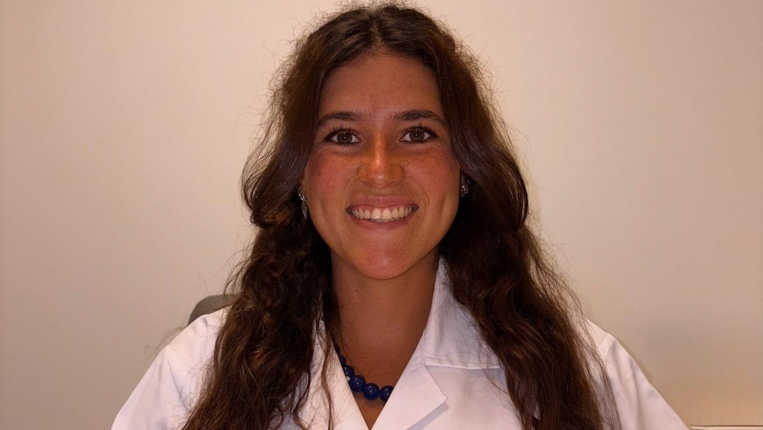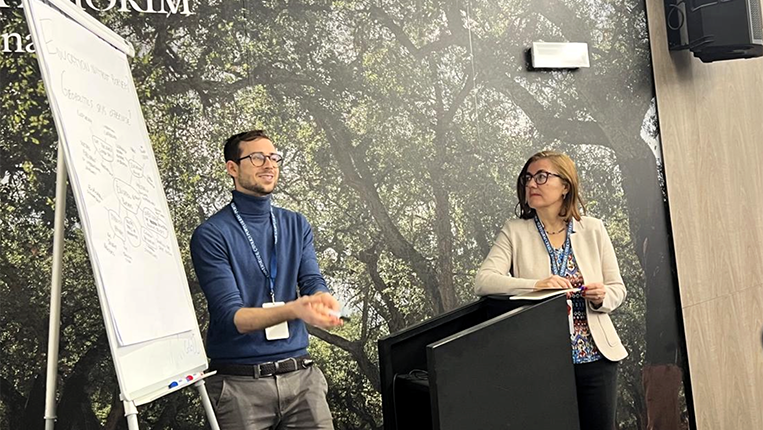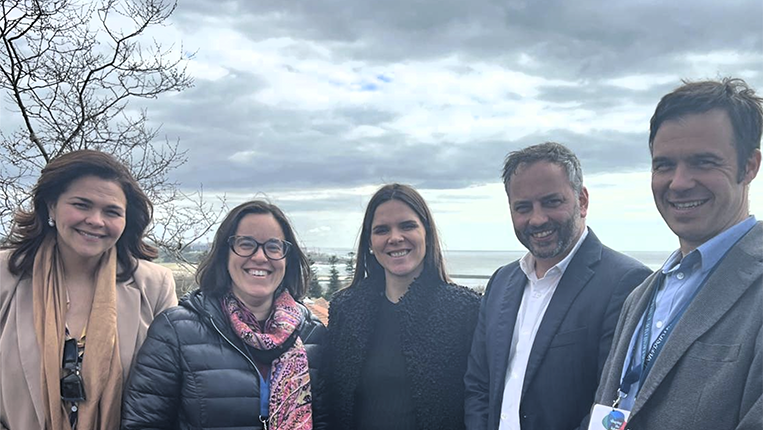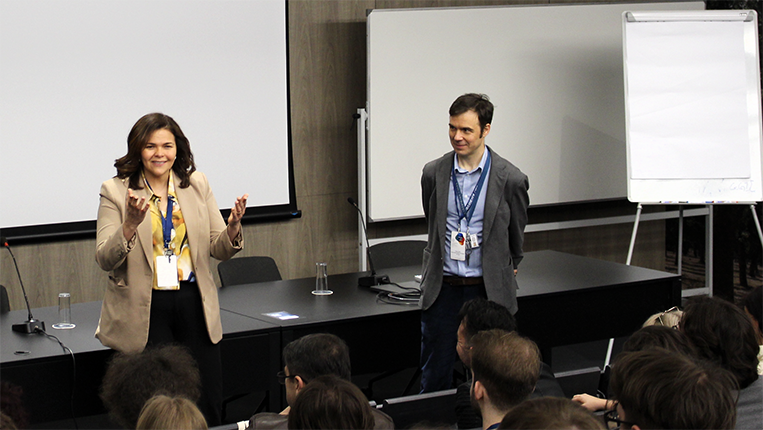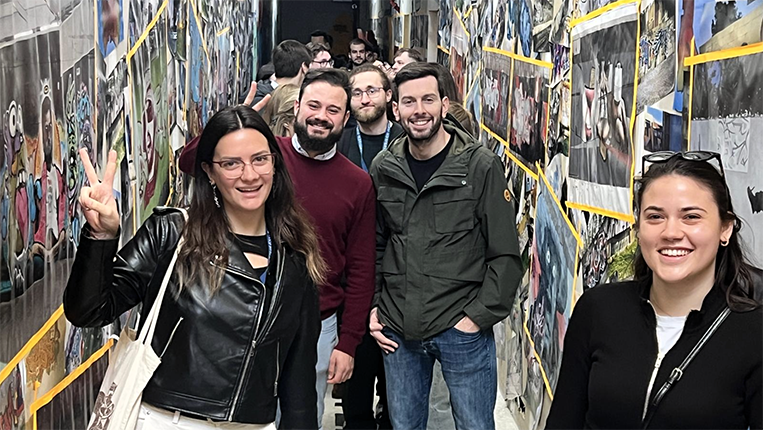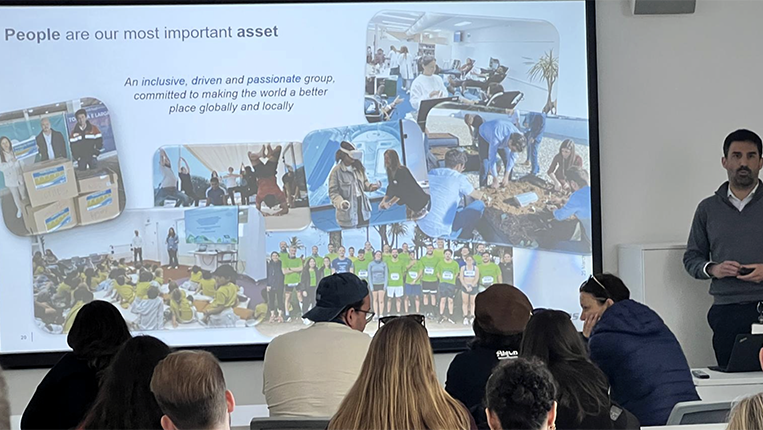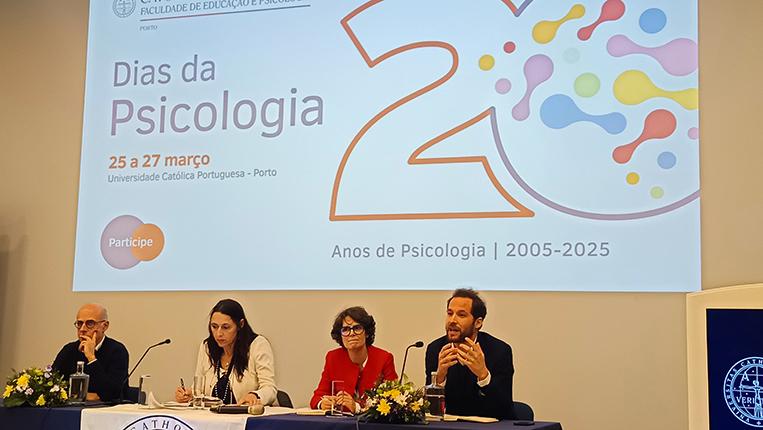The Research Centre for Human Development (CEDH), the R&D Unit of the Faculty of Education and Psychology of the Universidade Católica Portuguesa (FEP-UCP) was once again the stage for a memorable edition of International Week – a week dedicated to internationalisation. Under the theme "Innovation Beyond Boundaries: Crafting Education and a Talented Workforce in an Era of Change", the event brought together 52 participants from seven countries – Romania, Lithuania, Poland, Spain, Brazil, Italy, and Portugal – including students, lecturers, and researchers, creating a vibrant environment of sharing and learning.
Internationalisation is a strategic pillar of the Research Centre and, according to Patrícia Oliveira-Silva, Vice-Dean for Global Positioning at the Faculty of Education and Psychology, "it is not an accessory element, but rather a vital driver for strengthening our communities". More than simply establishing partnerships, this initiative aims to provide enriching experiences and promote lasting collaborative networks.
A week full of inspiration and knowledge
The International Week 2025 programme was carefully designed to balance high-level academic debate, immersive experiences, and networking opportunities.
Among the most remarkable highlights were the roundtable “The Role of Research in Shaping Future Competencies and Organisational Transformation”, moderated by Diogo Costa (CEDH and FEP-UCP), and the masterclass “AI in the Workplace: Friend, Foe, or Future?”, featuring contributions from academic and business specialists.
In addition to the sessions held at the Universidade Católica in Porto, participants had the chance to visit the Lionesa Business Hub, the Estádio do Dragão, and Hospital de São João, offering a concrete perspective on the dynamics of the job market and innovation across different sectors.
Tiago Maia, from the Lionesa Business Hub, highlighted “the importance of collaboration between academia and the business sector in preparing new generations for the challenges ahead”. The Head of Institutional Relations at Lionesa Business Hub added: “The partnership with Universidade Católica Portuguesa is an excellent example of how dialogue between education, innovation and talent can generate real and lasting impact.”
Strengthening international collaborative networks
One of the most valuable legacies of the week was the strengthening of international collaboration networks. A new partnership was signed with the Lucian Blaga University of Sibiu (Romania), research proposals were discussed between the Faculty of Education and Psychology and Spanish universities, and the next steps were defined in the partnerships between the Master’s in Psychology of Human Resources Development and equivalent programmes at Universidade CEU San Pablo (Spain) and Babes-Bolyai University (Romania).
But the impact goes far beyond signed agreements. According to Patrícia Oliveira-Silva, “the true success of this week lies in the bonds of friendship and cooperation that have been formed between our students and the international participants. This exchange of experiences strengthens our community and paves the way for future joint initiatives.”
Daniel C. Andronache, from Babeș-Bolyai University, praised “the hospitality and spirit of sharing that characterised the week”, emphasising that “internationalisation is made by people and the connections we build through authentic dialogue”.
Similarly, Amable Muñoz, from Universidad CEU San Pablo, underlined the importance of “recognising others, embracing differences, and learning from them, at a time when the world needs cooperation and shared reflection more than ever”.
Diogo Costa, from the Organising Committee of International Week 2025, added: “Events like this renew and inspire us to reaffirm the human – or humanistic – values and developmental principles that underpin institutions created by and for unity, such as the European Union itself.” In an international context marked by uncertainty, it is essential to demonstrate that “science is built through encounters – without borders, without prejudice.”
Internationalisation as a core pillar of institutional strategy
The research Centre for Human Development reaffirms its commitment to a global strategy and is already looking ahead to International Week 2026. In the coming years, the Research Centre and the faculty’s internationalisation strategy will involve expanding mobility programmes, strengthening the curricular offer in English, and promoting international collaborative projects.
The 2025 edition of International Week took place from 24 to 28 March and proved, once again, that education knows no borders.

